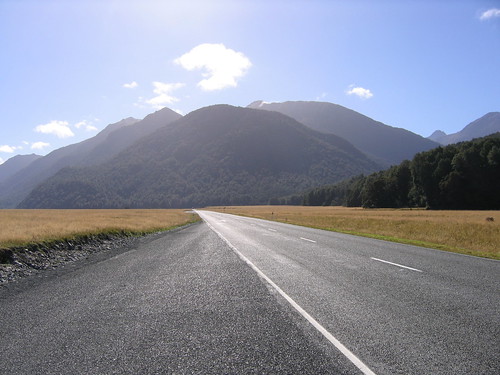 It is a day that stands out in infamy for me. The year was 1994. It is a day that changed my life in any number of ways.
It is a day that stands out in infamy for me. The year was 1994. It is a day that changed my life in any number of ways.
The day in question was day one of a four day course in the McKenzie Method. Yes, I will be the first to admit that it sounds a little corny, all this life-changing stuff. But in hindsight, it really isn’t that far from the truth.
On that particular day, I faced a challenge that all clinicians will face. I sat in a room full of my peers while an instructor, through no fault of his own, stood in front of a classroom and challenged every belief I had about my clinical practice patterns and the beliefs I was maintaining about the whole lot.
At the end of the day, it came down to a simple choice.
I really hadn’t wanted to even go to this course. My employer at the time demanded that I attend two McKenzie courses - Parts A and B. They were to be held in Corpus Christi, a coastal city about 200 miles from Austin. At that point in my young career, I thought I had already learned “that stuff” in university.
Ignorance is bliss.
I begrudgingly went to Corpus Christi and sat through day one. It was like a stack of research had been thrown onto a table with a resounding “thud”. The material was counter to what I had been taught. It was counter to the foundations upon which I had built 6 years of clinical practice. As the day progressed, it was becoming easier to feel defensive about the whole thing. This was challenging my beliefs – and making me very uncomfortable in the process.
Then there was “the question”. It was a question that struck to the heart, the core, of my being.
If I truly believed in the scientific method, and if I truly believed in being the best PT that I can be, then I had to put my beliefs aside (as much as possible) and listen. And read. And digest. And then I could make an informed decision, weighing out the evidence as a good scientist would do.
And the rest, as they say, is history. A short four years after that day, I had attained the highest level of training in the McKenzie Method. That was in 1998.
It is a story that I recount fondly. Why? Sure, the material that I learned – the approach to patient care – has had a huge impact on my career path and on how I view clinical reasoning and patient management. But that isn’t the most important lesson learned on that day in 1994.
In that one moment, I could see how my beliefs were getting in the way of the scientific method – good evidence and sound logic, or otherwise. It was one of the first times that I realized the impact of our belief systems on clinical practice, sometimes having far more impact than the actual evidence.
Lo and behold, I have found many instances through the years that evoke that same guttural, belief-defensive sensation. Take politics and religion as but two examples! Much as I have come to realize, in my profession and in my world, the science and the evidence isn’t what triggers emotional debate – it is our beliefs about the evidence that does. The sooner we understand that and appreciate it for what it is, the easier it is to have a constructive debate to find real solutions. Maybe the best solutions lie at the junction of discomfort and discovery.
It was a challenging and disconcerting day. But in hindsight, it was a catalyst for growth – and taught me some valuable life lessons in the process.
Photo credits: zensei8
 "Running Injuries: Etiology And Recovery- Based Treatment" (co-author Bridget Clark, PT) appears in the third edition and fourth editions of "Clinical Orthopaedic Rehabilitation: A Team Approach" by Charles Giangarra, MD and Robert C. Manske, PT.
"Running Injuries: Etiology And Recovery- Based Treatment" (co-author Bridget Clark, PT) appears in the third edition and fourth editions of "Clinical Orthopaedic Rehabilitation: A Team Approach" by Charles Giangarra, MD and Robert C. Manske, PT.
 Allan Besselink, PT, DPT, Ph.D., Dip.MDT has a unique voice in the world of sports, education, and health care. Read more about Allan here.
Allan Besselink, PT, DPT, Ph.D., Dip.MDT has a unique voice in the world of sports, education, and health care. Read more about Allan here.
 Top 5 finalist in three categories: "Best Overall Blog", "Best PT Blog" and "Best Advocacy Blog".
Top 5 finalist in three categories: "Best Overall Blog", "Best PT Blog" and "Best Advocacy Blog".